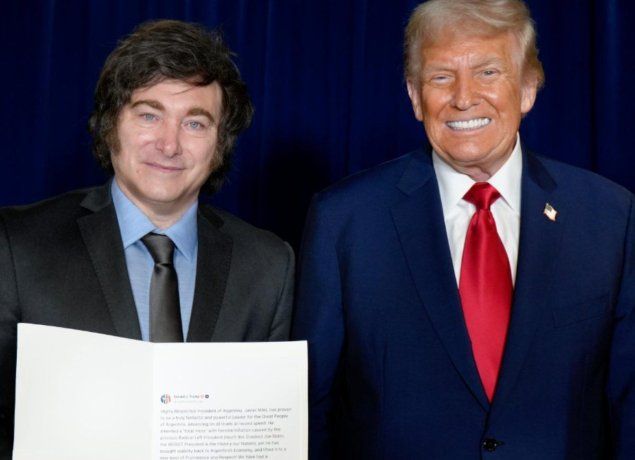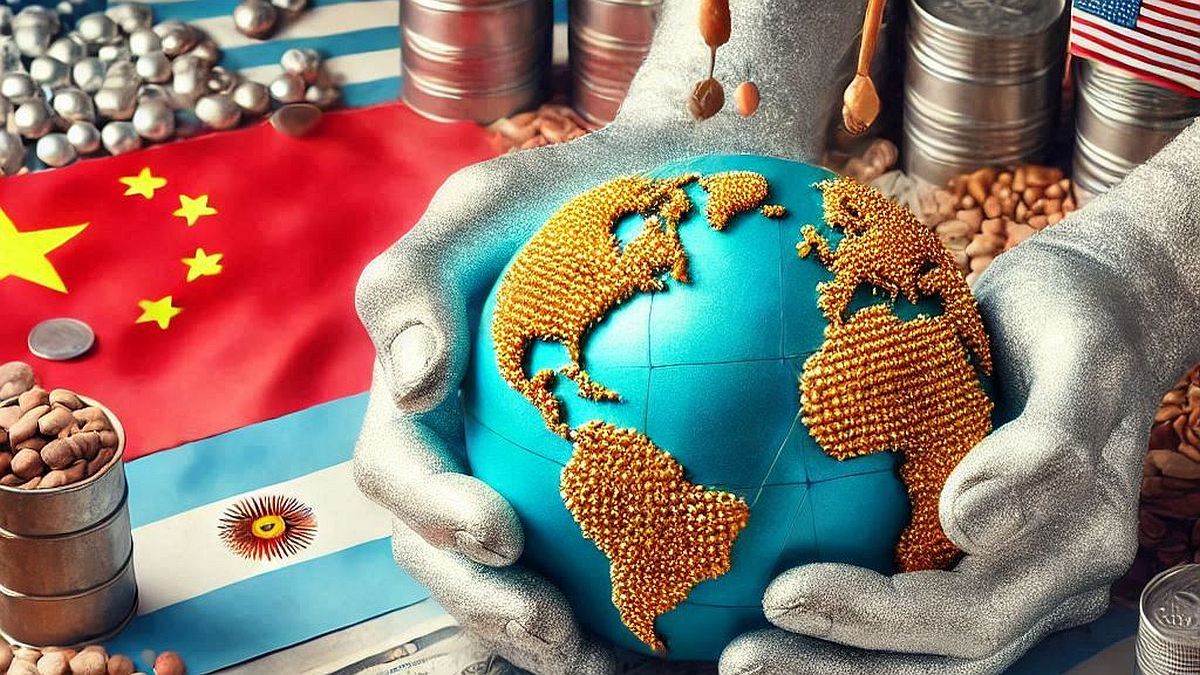prebisch.jpg
Raúl Prébisch was an economist and former Executive Secretary of the Economic Commission for Latin America and the Caribbean (ECLAC).
What the previous concept did not reveal is that a relationship of commercial, financial and productive inequality was configured between the economic center and the periphery. In the words of another Latin American economic school, it would be the dependence. This second school also gives us the notion of social groups that hold the peripheral productive structure.
From the economic center, a form of “economic thinking” is imposed to understand the economic system of exchanges, at the same time they train those “creoles” who, by dint of manuals with ideas, far from the national problems of the periphery, provide a solution to the “economic problem” that does not solve the economic and productive dilemma. Therefore, If the gringo who sells us is bad, the “creole” intellectual groups that develop anti-national thinking are worse. that does not contribute to solving the problems of the periphery. Therefore, the relevance of the previous contributions.
However, in a conference by Raúl Prebisch, dated December 17, 1981, at the Faculty of Economic Sciences of the UBA, he expressed: “In 1955, still with traces of neoclassical economics in my mind, perhaps I believed that this transfer of income in favor of companies, which a wage freeze would bring with it, would dissolve and spread in the community through the play of the laws of the market. It’s not like that. “I made that mistake, and I confess it publicly, because it is necessary for those who think today as I thought twenty-five years ago to reflect and understand that nothing more can be done.” It refers to the famous Prebisch Report (1956), to which Arturo Jauretche responded at the same time with his book “Return to colonialism.” Jauretche clarifies in the book that he was surprised and even doubted the authorship of that report because he knew of the career and importance of the Argentine intellectual.
Therefore, if primary products have a downward trend and since more soy is needed to buy a car or cell phone or motorcycle. If the export resources are not available to obtain these goods, private or public debt is resorted to. Here the debt dilemma arises: why go into debt?
Debts, both private and public, are taken to finance a public work (IDB, WB or IBRD), machinery for a specific sector (imports) but they coexist with the transfer of profits and dividends (multinationals), and the formation of external assets – demand for dollars for hoarding or transfer abroad -, but not to finance a fiscal deficit, because the budget is in pesos. This paragraph raises the national economic problem and the search for development with social inclusion and technological advances that improve the quality of life of Argentines and peers in the region.
However, let’s analyze the economic plan of Milei and Luis “Toto – Three anchors” Caputo, which Joaquin Cottani (former deputy minister of economy and close to Cavallo) explained: “My discussion with the team members was always the same. I never understood the economic program of freezing the money supply and endogenously dollarizing. I also did not understand why not the traditional monetary base, but the expanded base, was important for inflation. “, he commented, during an interview on the streaming channel Ahora Play. Here they confirm what we have been maintaining column by column every Sunday: “All these things were part of an idea that the team and Milei himself sold as novel and different, but it was proven that it was not. ”he remarked. In August 2023, Toto Caputo told him: – ‘you can dollarize. There is no need for reserves, the money supply is frozen and the economy dollarizes itself ‘. To his surprise, Milei told him ‘do it’. Cottani was surprised “why is he a guy -Toto- very intelligent, who knows the markets, but this does not enter into any monetary theory manual ”.
Javier Milei Donald Trump

The US announced a SWAP, which contemplates the disbursement of US$20 billion.
There are many heterodox Creoles who took the expanded basis for inflation or the notion of endogenous dollarization as accurate, and use the tools from the same manual as Toto Caputo. The government of Milei, Macri and Caputo (by the way, they discarded the investigation of the intellectual authors in the Montiel-Uliarte case and federal revolution?) implemented a classic liberal plan, fixed exchange rate -stabilized, but dependent on foreign currency income-, salary adjustment -public and private-, internal and IMF debt, budget adjustment -extended from 2023-2025, in the best Temer style in Brazil, with the sole objective of reducing inflation levels, resulting in peace in the cemeteries.
Faced with this economic pax, Deputy Minister of Economy Kristalina Georgieva, who suffered the vicissitudes of poverty, warned that “examples of brave leaders who did very difficult things, cut pensions and salaries by 40% or 50%, and were re-elected“ because “ they got people to join them“Will the Argentine people support the current government of Milei-Macri-Caputo-Bullrich-Espert?
In this context, Economy Minister Scott Bessen made a first intervention to maintain the stability of the exchange rate. First, it is clear that since Macri signed the agreement with the IMF (2018) the Argentine economy no longer has autonomy. Now it is clear as day what the role of the IMF is in the peripheral countries (Africa, Latin America and Asia – without China -), which is none other than to ensure, in this case for the United States, the following: “Trump wants American companies to invest in the uranium mining and enrichment, lithium mining and refining, and rare mineral mines. Above all, “Trump demands that companies from his country replace Chinese investments, especially in the areas of technology and telecommunications.” This dispute became evident when the administrators of Argentina decided to agree to a measure in favor of the grain exporters that are grouped in the CIARA-CEC and that contributed the 7,000 million dollars that the Argentine economy needed to solve old problems.
Both American and Chinese companies, along with another European company, took the tax benefit. This does not lead to the second sentence What do we do with the necklace? For now, commercial data can give us some clues.
According to ICA-INDEC, the three most important products of export They were flour and pellets from soybean oil extraction with 10.3% participation; grain corn, excluded for sowing with 9.3% and crude petroleum oils with 7.7%. Brazil was the main destination of goods exports with 14.8% of the total; China and the United States followed, with 9.3% and 9.0% of shipments of Argentine goods abroad, respectively. On the other hand, the main products imported They were motor vehicles, mainly for the transportation of people, with a share of 4.5% of the total purchased; followed by soybeans, including broken ones, excluded for sowing, which represent 3.7% of goods imports. The origin of imports was led by Brazil, China and the United States, which represented 25.4%, 22.4% and 9.4% of Argentine purchases of goods, respectively.
The intention of the Bessent-Trump swap seems to be aimed at recovering markets based on the demand for inputs required by their industries. Therefore, this dispute in national territory should not be surprising, as was evidenced by the message sent by the Chinese embassy in Argentina, clarifying that Latin America and the Caribbean is not anyone’s backyard, it should be clarified that we do not want to be the backyard of third parties either. Therefore, the relevance of the second phrase and the recovery of the pendulum movement proposed in the Peronist doctrine.
It is clear that the government aligned its foreign policy with the US, but the solution is to align with China? This deserves a broad debate, after the recent maneuver of COFCO, ICBC and the Bank of China on national territory. Neither Yankees, nor Marxists; neither Keynesians nor liberals: national.
Argentina’s trade deficit and technological dependence on China is a clear example of a dilemma to be resolved or will we continue exporting flour to import cars? It would not be prudent to recover the contributions of Prebisch, Sunkel, Rodriguez, Furtado, Theotonio Dos Santos, Mauro Marini and many others, in these new times with old unresolved dilemmas.
Because we run the risk of falling into the old phrase “buying from those who buy from us”, the important thing here is not to continue wagging our tail but to stop being a dog. Are competitive with the US, historically due to the role of our meat, but we are depending on Chinese technology, a country to which we also sell meat. Are complementary with China? We exchange soy flour for cars. Questions arise that our Creoles must resolve to break the necklace. That China does not become the buyer of those who buy from us in the 21st century.
For this reason, we bring to mind a reflection of the persecuted payador, because sometimes in these theoretical questions of gringo manuals, some of us are left out by singing other songs – the old stuff also works -, by Atahualpa Yupanqui.
If I have ever returned I have sung
Before pot-bellied patterns
I have piqued the reasons
Deep of poverty
I do not betray mine
By palms or patacones
Although I sing in every direction
I have a preferred direction
I always sang shaken
The pains of the countryman
Exploitation and outrage
From my dear brothers
So that things would change
I looked for direction and got lost
At the same time, he told me
And I took the right path
First of all, Argentine
And I followed my flag!
*UBA Economist, UNPAZ Professor, UNLa.
Corrections and comments from Gabriel Delgado (UNCUYO Attorney) are appreciated.
Source: Ambito
David William is a talented author who has made a name for himself in the world of writing. He is a professional author who writes on a wide range of topics, from general interest to opinion news. David is currently working as a writer at 24 hours worlds where he brings his unique perspective and in-depth research to his articles, making them both informative and engaging.



